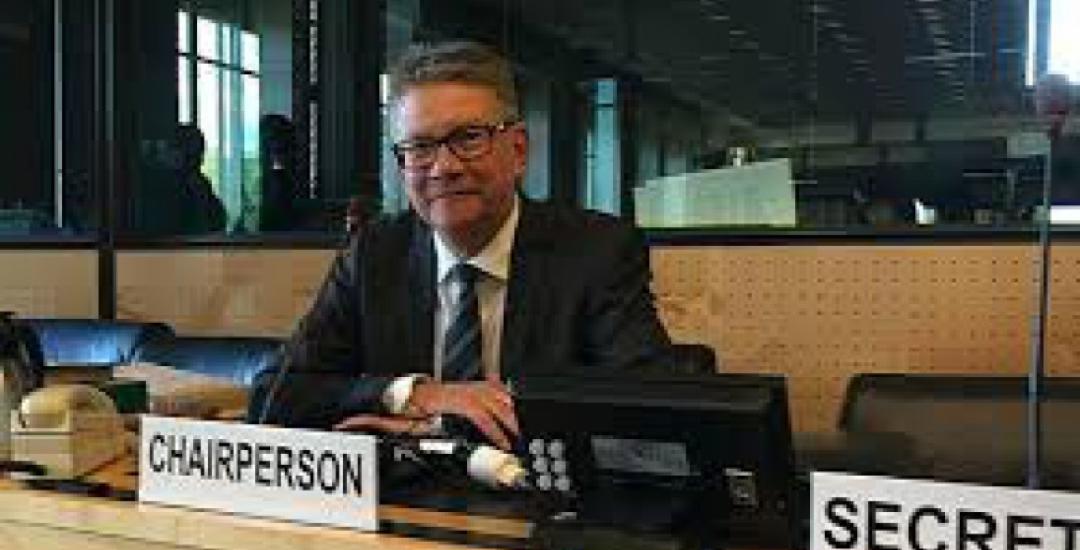
On 12 August 2016, the Committee against Torture (CAT) published its concluding observations on the third periodic review of Kuwait held during its 58thsession from 25 July to 12 August. The Committee's experts assessed the implementation of the Convention against Torture and Other Cruel, Inhuman or Degrading Treatment or Punishment (UNCAT), ratified by Kuwait in 1996, on the basis of information provided by both NGOs, including Alkarama's report, as well as the State party in its national report.
Failure to investigate and prosecute acts of torture
While torture is not a widespread or systematic practice in Kuwait, cases documented by Alkarama as well as an analysis of national legislation show a lack of the country's compliance with its obligations under the Convention.
Indeed, the Committee expressed concern on the cases of torture perpetrated by security forces in the framework of counterterrorism, and ill-treatment against peaceful human rights defenders and members of minorities, as reported by local and international civil society. The Committee shared Alkarama's concerns on the fact that torture is only considered as an offence or common assault in Kuwait and that the current maximum penalty is of five years imprisonment. The Committee therefore recommended Kuwait to ensure that acts of torture are criminalized and that they are punishable by penalties commensurate with the gravity of this crime. In 2002, the Committee against Torture had already recommended that prison sentences for acts of torture be set between six and 20 years.
Fundamental legal safeguards from the onset of the arrest
The Committee echoed Alkarama's concerns that detained persons do not enjoy all the fundamental legal safeguards from the outset of their detention and that the right to contact a lawyer and a family member is not guaranteed. The Committee therefore called upon the authorities to protect the right of a detainee to immediately notify a family member of their arrest, and to contact a lawyer without the previous permission of the investigator.
The Committee also expressed concern on the lengthy periods of time during which arrestees are detained before being brought before a judge, which could go up to 10 days and increases the risk for torture or ill-treatment. The Committee expressed further concern on the decision of Kuwait to reverse in July 2016, Act No.3 of 2012 amending article 60 of the Code of Criminal Procedure which aimed at reducing the period of detention from four days to 48 hours. The Committee therefore recommended Kuwait to ensure that people arrested on criminal charges are brought before a judge within 48 hours.
Prevention of torture and redress
In its Concluding Observations, the Committee expressed concern that complaints relating to torture and ill-treatment perpetrated by police and security forces are considered by the General Department of Monitoring and Inspection, a mechanism which cannot be considered as independent for it is part of the Ministry of Interior. The Committee emphasised that Kuwait failed to provide information on the establishment of an independent complaint mechanism of investigation into allegation of torture as well as on the number of complaints filed against public officers on torture and ill-treatment and the outcome of related proceedings.
The Committee also underlined the need for training on provisions of the Convention for law enforcement officials, investigators, judges and prosecutors, lawyers and other staff in order for them to be able to detect and investigate cases in which confessions are obtained under torture. Such a training is indeed essential in the prevention of torture.
The Committee reiterated its previous recommendation, as formerly suggested by Alkarama, that specific provisions on redress providing for fair and adequate compensation and rehabilitation should be included in domestic law.
Independence of the judiciary
The lack of independence of the judiciary was another concern of Alkarama echoed by the Committee, particularly as Kuwaiti judges are appointed for life by the Supreme Judicial Council, which is appointed by the executive. The Committee also expressed concern on the threats to the independence of foreign judges as they depend on the executive for both the review and extension of their terms. The Committee urged Kuwait to take all the necessary measures to guarantee the independence, autonomy and impartiality of the judiciary as well as the security of tenure for foreign judges.
Follow-up procedure
As part of the follow-up procedure, the Committee requested that, within one year, that a public statement be issued by the highest State authority condemning the use of torture and that information be provided on conditions of detention, on the reinstatement of the de facto moratorium on the death penalty, and on the situation of foreign workers. Alkarama will closely follow Kuwait's implementation of these recommendations and all its international human rights obligations, with particular focus on enforced disappearances, extrajudicial executions, torture and arbitrary detention.
Alkarama intends to closely monitor the implementation of the Committee's recommendations in Kuwait and provide a follow-up report to the Committee against Torture in a year. Hence, Alkarama calls on the Kuwaiti Civil Society for its collaboration and input.
For more information or an interview, please contact media@alkarama.org (Tel: +41 22 734 1008).
